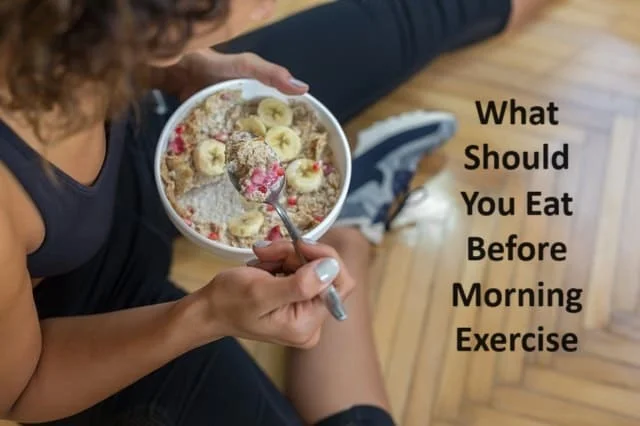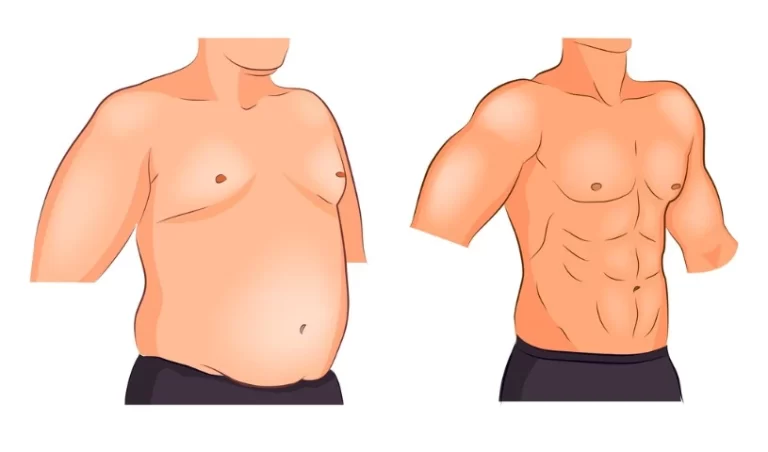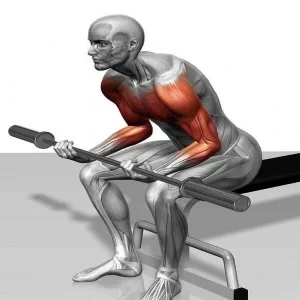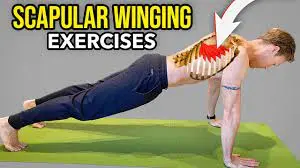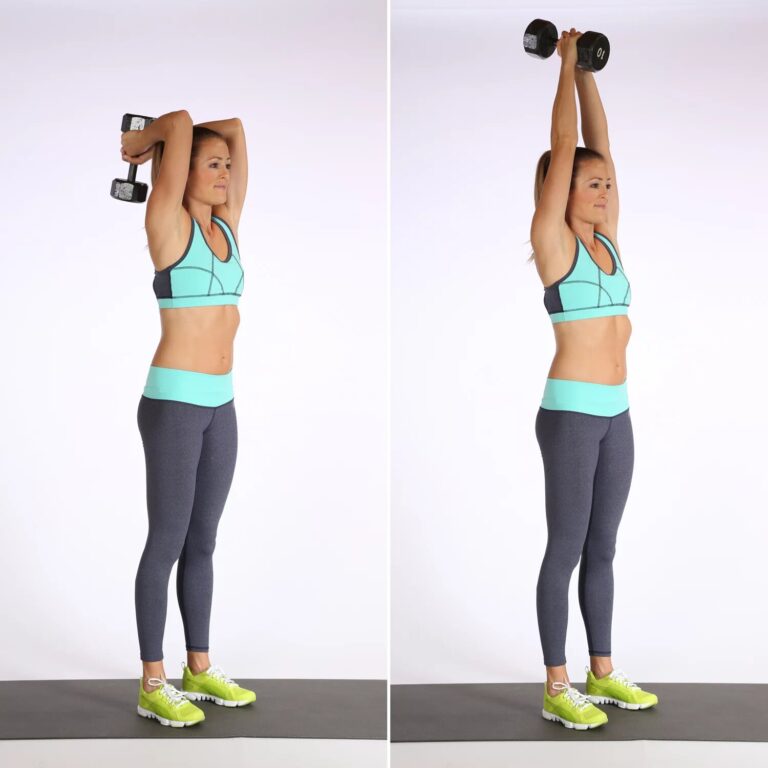What Should You Eat Before Morning Exercise: Pre-Workout Nutrition
Instruction
Protein and carbohydrates are the two macro-nutrients that are most important for providing the best possible pre-workout nutrition.
Because they supply the necessary glucose, which acts as the main energy source for muscular contraction, carbohydrates are important. Muscle glycogen reserves take over as the main energy source, particularly during high-intensity, brief exercise. Therefore, adding carbs to your diet before working out helps your body’s glycogen reserves be replenished, readying it for the next workout.
As an essential macro-nutrient, protein is a necessary component of all bodily cells. Protein, which is made up of amino acids, is essential for the growth and repair of muscles after strength training sessions. It also aids in satiety, which helps suppress appetite when exercising.
On the other hand, fat and fibre are two nutrients that are best left out of pre-workout meals or snacks. Fibre and fat both slow down the process of digestion. Taking high doses of these nutrients right before working out might cause upset stomachs, which makes people feel heavy and sleepy.
What Kind of Early Morning Exercise Is Important?
It may be difficult to decide whether to eat before working out, and this is a source of debate. It has been noted that pre-exercise foods provide the body with the energy it needs to get through a workout. On the other hand, working out while fasting has also gained popularity. It is dependent upon the kind of activity your customers are doing and what they should eat before a workout.
The first step in figuring out if your customers should eat before their morning workout is to understand the kind of activity they are doing and their goals. Faced cardio could be an excellent choice for individuals who want to burn some body fat and get their heart rate up in the morning. But if your customers are exercising in the hopes of improving their general performance by running quicker, lifting more weight, or becoming stronger, they might want to give it some thought.
Short-Duration Cardio: High Intensity
Short-duration, high-intensity cardio usually lasts 30 to 45 minutes. High-intensity interval training (HIIT) is one instance. Glycogen is the primary fuel used in this kind of activity. The body uses glucose stored in the form of glycogen as its primary fuel. During an exercise session, muscles use up their glycogen stores. Most people don’t need to eat since they have enough glycogen stored in their muscles to last through brief aerobic sessions.
Long-Duration Cardio: Moderate to High Intensity
A moderate-to-intense, long-duration aerobic workout lasts for at least 60–90 minutes. Exercises like cross-country skiing, cycling, rowing, and running are examples of long-duration cardio. The body uses a mix of fat and carbs as fuel during extended aerobic exercise. Your customers could benefit from having a higher-carbohydrate snack before working out if they plan to do longer-duration cardio.
Long-Duration Cardio: Low to Moderate Intensity
Exercise that is gentle or low-intensity puts less strain on the body. Tai chi, yoga, and longer walks are a few examples. It’s not essential to consume as much before this type of exercise. When exercising, the body can draw energy from its fat reserves to maintain a steady flow. Encourage your customers to have a modest, high-protein snack before beginning their workout if they find themselves becoming hungry in the middle of it. This will help them suppress their hunger without generating unwelcome stomach pain.
Resistance Training:
A sudden increase in strength and energy is necessary for strength training. Prior to strength training, the body may not have the energy required to sufficiently push the muscles in order to promote muscular breakdown and repair if it is not adequately fueled. Your customers may maintain a strength training session at a higher intensity by eating a little meal or snack beforehand.
Before doing strength training, your personal training clients should think about having a diet that provides both protein and carbs. The protein can promote muscular development and recuperation, while the carbs will provide the muscles with the fuel they need to function. Remember that it is possible to grow muscle without eating before working out, especially for people who have strong feelings about it. Urge such customers to consume enough carbohydrates and protein for the remainder of the day.
Should you eat before a morning workout?
Glycogen, or stored carbohydrates, is found in the muscles and liver of the body. These are the main sources of energy for exercise, together with the carbohydrates you ingest.
Your glycogen stores are nearly empty after a prolonged fast of more than eight hours while you sleep. Additionally, you will essentially be running on empty if you don’t eat anything. The ultimate effect is really little energy when working out.
I understand that you really don’t feel like eating that early because you are already getting up early to work out. Maybe eating doesn’t look enticing at five or six in the morning. Alternatively, perhaps you’re worried that you’ll eat the wrong stuff and develop a stomachache or side stitch.
You can, however, be confident that making the correct breakfast or snack choices before your workout can only benefit you. Finding the perfect meal for your body in the morning does require some trial and error, but once you figure it out, it’s well worth the effort.
Does exercising without eating help you burn fat?
Exercise on an empty stomach, also known as a fasting workout, is a hotly discussed issue these days in social media and health publications. While most registered dietitians discourage it, many who exercise while fasting attest to its benefits.
It is commonly recognized that the body uses food carbohydrates and glycogen, or stored carbohydrates, as its main energy sources when exercising.
However, if the body is deprived of carbohydrates for energy, the body breaks down its fat reserves.
The body must use more energy and exert more force to break down fat than it does to break down carbohydrates. There is some validity to this since some studies indicate that exercising while fasting may lower the proportion of body fat.
However, studies also indicate that exercising while fasting reduces total performance, which may have an impact on muscle growth.
It seems reasonable to believe that fasting exercises will aid in weight reduction because they primarily burn fat for energy.
However, a fasting workout by itself won’t make you lose weight. To lose weight, you must combine exercise, a calorie deficit, and a well-balanced diet.
Fasting before doing exercise may even increase your hunger later in the day, which increases the risk of overeating, according to some studies.
Can I work out for a short while without eating?
You might not think much of fasting before a workout if you’re only working out for a short while.
Go ahead and work out while fasting if you feel comfortable doing so! Just remember that even if you feel wonderful, you may feel much better if you have a small meal.
Eating a sufficient amount the night before might sometimes enhance glycogen storage, allowing you to potentially have enough fuel for an early workout. This entails having a substantial meal that is high in fats, proteins, and carbohydrates to keep you going into the morning.
It’s all a matter of trial and error. That may be the case if you find that exercising while you’re not eating helps you! However, if you skip meals before working out, make sure to have some recovery foods right after.
Pre-Workout Snack and Meal Ideas
These nutritious solutions are available if your training customers wish to incorporate meals or snacks before their workouts.
- Dried or fresh fruit: Packed with potassium, bananas make a fantastic pre-workout snack. They include a lot of basic, easily digested carbs and sugars. Similarly, dried fruits such as apples, apricots, raisins, and mangos can also be a fantastic choice. Urge your customers to search for sugar-free dried fruit. Dried fruit offers sufficient amounts of natural sugars and calories and is naturally sweet enough on its own.
- Dry cereal or granola: Granola usually has an oat foundation. Oats are fast-digesting healthy carbohydrates. Snacking on some dry cereal before working out can also be a terrific idea. Cereal is the perfect fuel source for the body before an early-morning workout since it is high in carbohydrates. Ask your customers to seek out low-fibre and added-sugar cereals. To help prevent any stomach pain, grab a couple handfuls of dry cereal and skip the milk before working out.
- Waffles and pancakes are classic morning foods that may be cooked with a range of grains to provide your clients with the energy they need to work out. They may be prepared in advance and are quite adaptable. Urge your customers to top theirs with Greek yoghurt and strawberries, or freeze the excess to quickly reheat in the morning.
- Oatmeal: Muesli makes a fantastic pre-workout food on mornings when your clients have a little more time. Due to its high carbohydrate content, muesli helps sustain energy levels throughout an early workout. The combinations of add-ins for Muesli are virtually limitless. Some ideas are Greek yoghurt, protein powder, dried or fresh fruit, and nut butters like peanut butter or almond butter.
- Toast with jelly: A classic breakfast item, jelly toast is a simple, quick, and easy-to-make pre-workout snack. Urge your customers to choose complex carbohydrates on whole-grain bread. Sourdough can also be an excellent substitute if they have previously seen stomach problems related to fibre consumption.
- Granola bars or protein bars: Granola bars may be a fast food source to provide you with an energy boost before an early-morning activity. To help reduce appetite and supply protein for muscle growth and recovery, think about consuming a high-protein bar before strength exercise.
- 100% fruit juice: No matter what they eat, some people simply don’t feel well enough to work out after eating. For customers who find it difficult to eat in the morning, 100% fruit juice might be a fantastic choice. It can give customers who don’t want to eat before working out a fast supply of sugar and an energy boost.
What should you avoid eating just before a morning workout?
Here are some ideas for what not to eat before an early morning gym session, now that you know the best easy meals to consume before working out:
- Steer clear of fatty foods like cheese, bacon, sausage, and plant-based equivalents of these. During exercise, indigestion is brought on by fat that remains in the stomach for extended periods of time.
- Eat nothing hot that will make you burp, reflux, or have heartburn.
- Avoid high-fibre meals such as beans, cruciferous vegetables, and other veggies that make you gassy.
- Coffee should only be consumed if it is a regular habit and does not upset your stomach.
- Avoid overindulging in heavy foods like fried doughnuts or buttery croissants. Despite their diminutive size, they are high in calories and fat.
Here are 19 breakfast alternatives to try before working out
The fact is that each person’s ideal pre-workout nutrition varies. Finding out exactly what, how much, and when to eat before working out may take some trial and error. We’ve compiled a list of a few breakfast options to help you get motivated before your next workout. Additionally, you may discover something that suits you, whether you’re searching for a light morning snack or something more substantial because we’ve sorted them from lighter to stronger selections.
Keep in mind: A lot of these pre-workout breakfast thoughts (particularly those that are very early on the list) are not sufficient to keep you going until lunchtime. Reach for a second breakfast that contains protein and carbohydrates or a post-workout snack when your energy levels drop and your stomach begins to complain. These foods will help your body heal and recuperate.
- A few sips of pure fruit juice:
Granted, juice by itself isn’t a meal in and of itself, but according to Clark, individuals who find it difficult to eat in the morning but still need a little pick-me-up should consider this short sugar fix. According to Clark, even a modest quantity of carbs can provide you with enough nutrition to counteract any sleepy lethargy you may have just after getting out of bed, giving you the ability to complete a workout before you have time to sit down to a filling meal. - A chocolate milk glass:
This drink’s outstanding pre-workout breakfast snack attributes also make it a wonderful post-workout snack. Chocolate milk is an excellent choice if you’re seeking food in the morning but aren’t a huge fan of solid food because it’s packed with protein and carbohydrates to keep you going throughout your exercise. If you are intolerant of lactose, consider trying chocolate or lactose-free soy milk. - A little portion of granola or cereal:
If a large bowl of cereal seems excessive, you can also only take a handful of your preferred granola, muesli, or flakes. According to Clark, you may get enough carbohydrates, fibre, and protein from a little piece of food like oats, maize or wheat flakes, dried fruit, nuts, and seeds to keep you going during your workout. - A fruit banana:
This breakfast concept is perfect for those who wake up feeling a little queasy since bananas are very soothing to the stomach. It’s the ultimate grab-and-go meal. You may get some protein and fat to sustain yourself by eating it with a dollop of peanut butter or another nut or seed butter, such as sunflower or almond. - A jam-topped slice of toast:
According to Clark, this meal is a great idea before working out because it’s simple to prepare and easy to stomach. Add a small amount of nut butter on top to satisfy even the strongest appetite. If you have trouble tolerating gluten, toast devoid of gluten works just as well. - A smoothie made with fruit:
Smoothies are a great pre-workout beverage since they are high in nutrients and easily consumed. Additionally, the ingredients you select will determine how full your smoothie is. For a lighter smoothie, you may use only fruit and milk; for a heartier smoothie, you could add nut butter, yoghurt, and/or your preferred protein powder. - A date shake:
According to Rhyan Geiger, RDN, owner of Phoenix Vegan Dietitian, “dates are the perfect addition to your pre-workout breakfast because they are slow-digesting carbohydrates that give your muscles energy during a workout.” Geiger claims that dates are an excellent choice for preventing muscular aches and discomfort due to their high magnesium and potassium content. Dates, bananas, cinnamon, and non-dairy milk are the ingredients in her favourite smoothie; real milk is OK if preferred. However, dates do include fibre, so you might want to keep this one for when you have a little more time to digest than normal if you discover that your stomach is sensitive to this vitamin during a workout. - A yoghurt cup:
Another simple method for providing your body with protein and carbohydrates before a workout without the need for chewing is delicious yoghurt. You may add honey or jam for extra rapid energy in the form of sugar if you want to buy unsweetened. It would also taste well with a handful of oats or a sliced banana. Try reduced-fat or fat-free yoghurt if full-fat yoghurt is too much for your stomach just before an exercise, or look into plant-based or lactose-free choices. Just make sure that the protein and carbohydrate compositions are the same. - A half-cup of ricotta or cottage cheese topped with berries and honey:
This Carolyn Brown, MS, RD suggestion has a decent quantity of protein and carbohydrates that provide energy. It’s also infinitely riffable and quite simple to make; just open a jar, take a couple spoonfuls, and go. For an autumnal treat, try topping your cottage cheese or ricotta with some sliced apples and maple syrup, or for a more tropical twist, try adding some citrus and agave. - A cookie or two for breakfast:
Even though it’s unlikely that you’ll have time to prepare a batch of cookies the night before or over the weekend, you may prepare them in advance and have them handy for your early exercises. A number of the same healthy ingredients found in granola, including nuts, fruit, honey, oats, and other grains, are also frequently included in breakfast cookies. Make these in large quantities and keep them in the refrigerator or freezer in an airtight container so you can always have them on hand. - Rice cakes topped with nut butter:
When time is at a premium and you can’t even manage to make a shake, consider this easy rice cake and nut butter combo that only needs a short trip through your cupboard and a spoonful or two of batter. This is a recipe that Jones previously suggested to SELF since it is low in fat and high in protein, and it is also very simple to prepare and pleasant on the stomach. To add to that, the concept is far more adaptable than it first seems. This simple recipe is difficult to mess up, regardless of the kind of nut butter or rice cake flavour you choose to use. - A protein bar or granola:
Bars are very great; they’re portable, easy to eat, and full of minerals. Indeed, O’Donnell-Giles claims to constantly carry several bars in her gym bag to meet all of her pre-workout demands, whereas Clark, on the other hand, is especially fond of Kind Healthy Grains Bars. Protein bars are a particularly good choice prior to weight training exercises (however, if they make you feel bad, you should avoid consuming super-high protein bars straight before a run, for example). There are countless flavour and texture combinations available, whether you make them yourself or purchase them. Just watch out for kinds that are high in added fibre since they might irritate your stomach mid-workout. - Milk-based muesli:
According to Clark, this traditional combination is full of protein and complex carbohydrates. You may make overnight oats, stovetop oats, or instant packages. You can also easily customise them by adding some brown sugar, raisins, almonds, or berries. Use soy or pea milk if you’re not eating dairy to add a bit more protein to your diet. - A little bagel slathered with cream cheese:
The key to fulfilling your early-morning bagel cravings without stuffing your stomach before a workout is to use little bagels. Add a tiny bit of cream cheese for a small amount of fat and protein, if your tummy can handle it. If a dairy-free substitute with a tofu base is more in line with your eating habits, you may also try it. - Grapes and a hard-boiled egg:
According to Jones, hard-boiled eggs are a practical and rather moderate protein source that may be consumed in the morning hours before working out. If you’re more of a hunger pang, add some sweet fruit, such as bananas, nectarine, or grapes, on the side for some quick energy. - A cooked sweet potato for breakfast:
I like eating a sweet potato before working out in the morning since it is surprisingly versatile and includes both potassium and carbs, two essential elements for activity. She likes to keep things sweet, so she tops hers with some nut butter and cinnamon. However, before a workout, a little cream cheese and everything bagel seasoning would be equally delicious and a terrific alternative. The USDA says that sweet potatoes that have been baked can be stored in the refrigerator for up to three or four days, but they can also be frozen and simply reheated in the microwave. - A pair of roll-ups with deli slices:
For example, Jones suggests consuming turkey slices with lean meat as an easily digested source of protein before working out. Your protein may be conveniently and guilt-freely delivered in the form of a tiny tortilla or wrapped by rolling them up. You might also include a slice of cheese if you have the hunger and time to process it. - A little toast and an egg frittata:
Another excellent option to get your eggs in the morning without setting your alarm any earlier is to bake little readymade frittatas, often known as egg muffins, in a muffin pan. Frequently crafted with a little amount of cheese, meat, and/or vegetables, they provide a substantial pre-workout energy boost. When preparing meals for the week, prepare a batch of these and save one or two for a quick snack on weekday mornings, either chilled or lightly microwaved.
Conclusion
You may give your body the nutrition it needs for your early workout by eating before.
Eating a modest breakfast or snack containing carbs and some protein one to three hours before you begin exercising is highly recommended by experts for some forms of exercise, such as strength training and long-duration aerobic activity.
However, if you exercise your heart for 45 minutes or less, you can probably go without eating.
Nevertheless, eating a meal or snack is a good idea if you have blood sugar problems, feel weak or tired after not eating, or feel better after eating.
Overall, eating before doing it in the morning depends a lot on personal preference; you may need to experiment a little to find what suits you the most.
FAQ
Is it best to workout on an empty stomach in the morning?
While exercising while fasting may help you lose some weight quickly, it’s not the healthiest thing for your body over the long term. Have a little lunch or snack before and after your workout to make sure you’re well-fueled to work out hard and recuperate fast from it at home.
30 minutes before going to the gym, what should I eat?
Within 15 to 30 minutes of ingesting low-glycemic carbs, such as fruit, grainy bread, and oats, your body can begin to release modest quantities of energy from them. increasing blood glucose levels and starting to store this energy as glycogen in your muscles.
Is one banana enough for a pre-workout?
Bananas: If you eat two bananas 30 minutes before working out, the natural sugars, digestible carbohydrates, and potassium will boost your energy and stabilize your blood sugar levels, making you ready for a 90-minute workout.
Should I eat before a 5 a.m. workout?
Before their early workout sessions, I like to have a little breakfast that includes some protein and carbs. On the other hand, there won’t be any negative effects if you skip a meal before breakfast.
Can I eat rice before a workout?
Because white rice is high in readily digested carbs and maybe just as healthful as brown rice, it’s another fantastic pre-workout snack.
Is potato a good pre-workout?
In order for strength, endurance, or team sports athletes to perform at their peak, potatoes supply them with energy, potassium, and carbohydrates. Two to four hours before working out, serve a sufficient-energy supper to support the next exercise.
Reference
- Cpt, Katey Davidson MScFN, Rd,. “What Should You Eat Before a Morning Workout?” Healthline, 8 July 2021, www.healthline.com/nutrition/what-to-eat-before-morning-workout#bottom-line.
- Bruno, Audrey, and Claire Gillespie. “What to Eat Before a Morning Workout: 18 Snack and Breakfast Options to Try.” SELF, 20 Dec. 2022, www.self.com/story/the-best-breakfasts-to-eat-before-an-early-workout.
- What Should You Eat Before a Morning Workout? | ISSA. www.issaonline.com/blog/post/what-should-you-eat-before-a-morning-workout. Accessed 8 Dec. 2023.
- Rd, Natalie Rizzo Ms. “What Should I Eat Before an Early Morning Workout?” Greenletes, 21 June 2023, greenletes.com/fuel-for-an-early-morning-workout.

